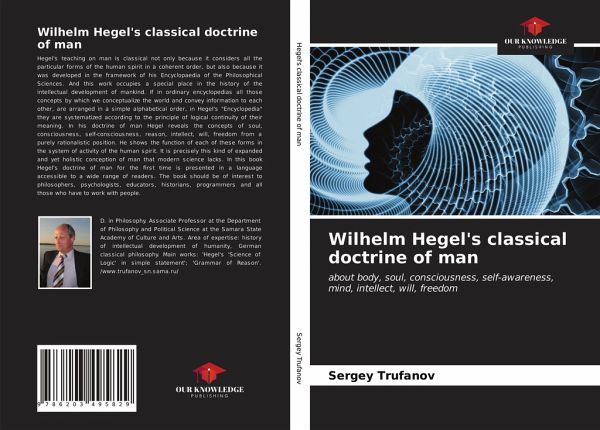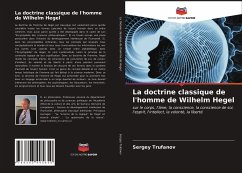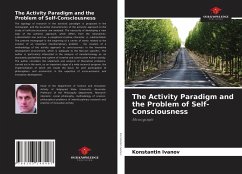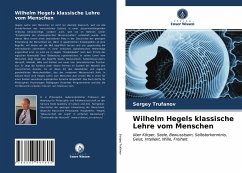
Wilhelm Hegel's classical doctrine of man
about body, soul, consciousness, self-awareness, mind, intellect, will, freedom
Versandkostenfrei!
Versandfertig in 6-10 Tagen
52,99 €
inkl. MwSt.

PAYBACK Punkte
26 °P sammeln!
Hegel's teaching on man is classical not only because it considers all the particular forms of the human spirit in a coherent order, but also because it was developed in the framework of his Encyclopaedia of the Philosophical Sciences. And this work occupies a special place in the history of the intellectual development of mankind. If in ordinary encyclopedias all those concepts by which we conceptualize the world and convey information to each other, are arranged in a simple alphabetical order, in Hegel's "Encyclopedia" they are systematized according to the principle of logical continuity of...
Hegel's teaching on man is classical not only because it considers all the particular forms of the human spirit in a coherent order, but also because it was developed in the framework of his Encyclopaedia of the Philosophical Sciences. And this work occupies a special place in the history of the intellectual development of mankind. If in ordinary encyclopedias all those concepts by which we conceptualize the world and convey information to each other, are arranged in a simple alphabetical order, in Hegel's "Encyclopedia" they are systematized according to the principle of logical continuity of their meaning. In his doctrine of man Hegel reveals the concepts of soul, consciousness, self-consciousness, reason, intellect, will, freedom from a purely rationalistic position. He shows the function of each of these forms in the system of activity of the human spirit. It is precisely this kind of expanded and yet holistic conception of man that modern science lacks. In this book Hegel's doctrine of man for the first time is presented in a language accessible to a wide range of readers. The book should be of interest to philosophers, psychologists, educators, historians, programmers and all those who have to work with people.












